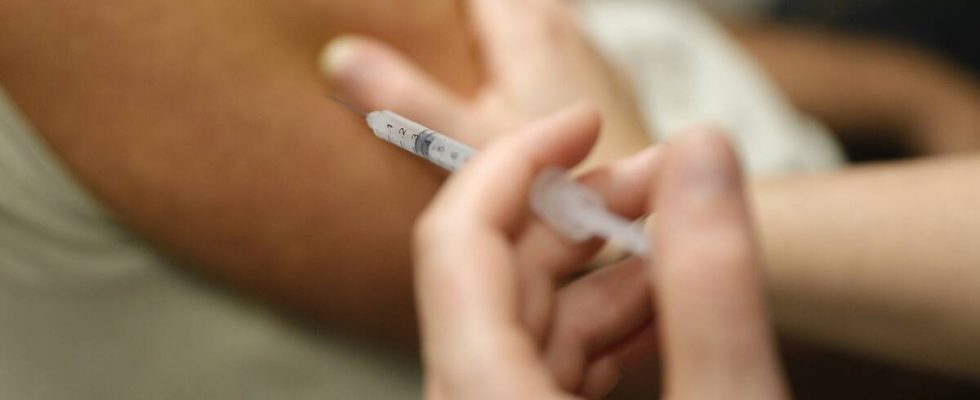The French are mostly fans of the injection, but the level of vaccination must still improve to effectively protect the entire population in an optimal manner. Conclusions delivered this Monday, April 22 morning by Santé Publique France, in its 2023 report published at the start of European Vaccination Week. The Agency notes a “high level” vaccination adherence – more than eight out of ten people say they are in favor of vaccination in general – “high level” which has stabilized for several years and even exceeds the period before Covid. A little more than a third even say they are very favorable.
This support is firstly reflected in the increasing choice of parents to vaccinate their infants. Including for newly recommended vaccines. Thus almost three quarters of babies born in 2023 received at least one dose at eight months against meningococcus B, one of the viruses responsible for meningitis – this was a little less than half for those born in 2022. 2023 was also the first year when vaccination against rotavirus, one of the causes of gastro, was recommended for new births: around a third received a dose at eight months.
As for compulsory vaccines, coverage is “overall high” in babies. But it is still insufficient for measles: 92.8% have received a second dose, while the objective would be to reach 95% to eliminate the virus. This protection is all the more important given the resurgence of this disease around the world, including in Europe and France – with an eight-fold increase in the number of cases in 2023 in France, and the existence of pockets of individuals receptive to the virus, particularly adolescents and young adults. At the dawn of the Paris Olympics and the arrival of millions of foreign visitors, “it is particularly necessary […] to strengthen vaccination catch-up for all children, adolescents and young adults born after 1980 who have not received a complete two-dose schedule”insists Public Health France.
“Insufficient” flu and Covid vaccination
Among the diseases on the rise are also meningococcal infections, which jumped 72% compared to 2022 – a year in which health authorities were already warning of an increase in cases. At the same time, vaccination of adolescents against one of these meningococci – C – increased from 48% to 43.2%. For this age group, however, data on vaccination against papillomavirus (HPV) infections – recommended from 11 years of age – are lacking. The timid beginnings of the vaccination campaign in colleges, however, allow us to understand support for this injection: only 10% of 5th grade students received a first dose, according to the first figures.
For adults, Public Health France is especially concerned about the rate of protection against flu and Covid-19. “Insufficient in people at risk”, she decides. And for good reason: barely half of those aged 65 and over (54%) were vaccinated against the flu in the 2023-2024 season, i.e. 2.2 points less than a year earlier, and a quarter (25.4 %) of those under 65 at risk of serious illness, i.e. 6.2 points less. Against Covid, only a third of those aged 65 and over have been vaccinated.
It must be said that the anti-Covid injection is the one that arouses the most distrust: 29% of 18-75 year olds in mainland France are against it – ahead of flu (6%), hepatitis B (4%) and HPV (3%). And, for the first time since the Covid pandemic, vaccination compliance is decreasing among older people. Behind the figures also hide the usual socio-economic inequalities in health. Thus, people with the lowest qualifications or income are more wary than the rest of the population regarding vaccines.

